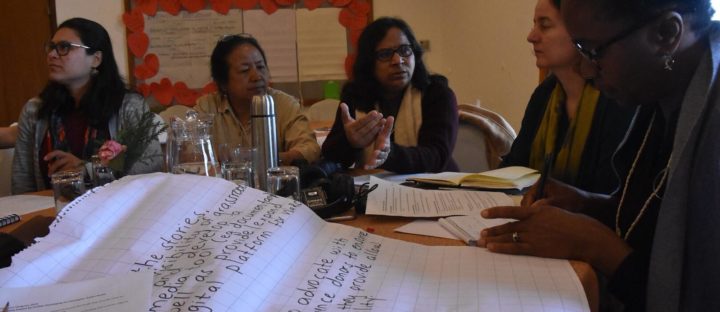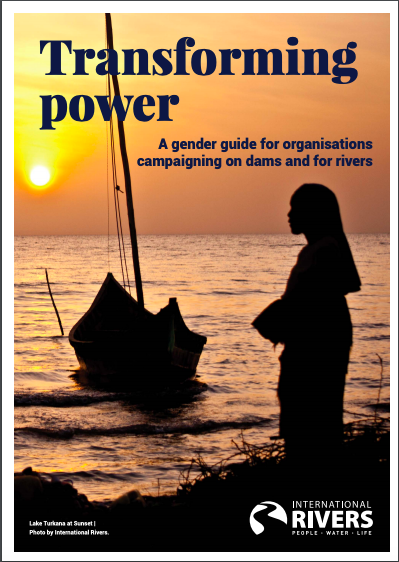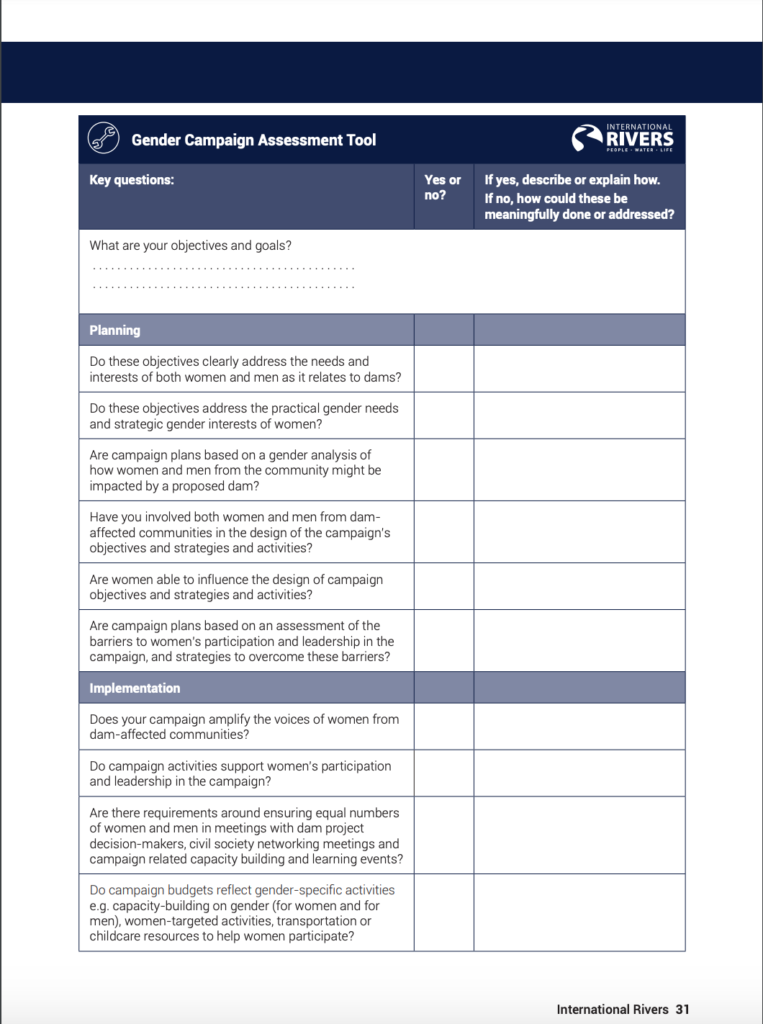
We invite you to register for a cross regional webinar on Zoom on 26 November 2020 at 15:00 Mekong/ 9:00 Kinshasa (DRC) to explore Transforming Power, A gender guide for organisations campaigning on dams and for rivers. The webinar will bring together presenters and participants working on women and rivers in Asia and Africa, providing an opportunity to share experience and build new relationships and networks.
This cross regional webinar will introduce some of the dedicated people behind the creation of the gender guide and its testing in the communities of Inga in the Democratic Republic of Congo (DRC). The webinar will further explore the potential use of the guide across regions as a tool for campaigning.
This webinar follows the Asia Women and Rivers webinar series on supporting Women’s Leadership and responds to the call from participants for more practical tools to building women’s leadership and power.
Registration opens on the 5th of November and closes on the 20th of November.
Link for registration:https://zoom.us/meeting/register/tJcvde-sqz8pHtbw1GL_hOrCvjgwV8Jdz_CJ
Transforming Power, a gender guide for organisations campaigning on dams and for rivers was created as a tool to help CSOs, NGOs and grassroot community organisations strengthen their gender practice and encourage campaigning in ways that are gender-responsive in the interests of both women and men. The guide was developed in collaboration with civil society partners, community representatives and women, who shared their experiences of the Inga dams in the Democratic Republic of Congo (DRC).
While the guide is situated within the gender binary framework that continues to dominate many dam- affected communities, it can be translated into a broader framework beyond the male-female binary through the use of practical tools which are included in the guide. The Gender Guide is designed to be adjusted, added to, translated and altered for different audiences. Different settings and contexts will elicit different responses and as a result the use of additional imagery, flow charts, checklists, case studies, activity sheets and facilitators notes, will be required. This flexibility enables the adaption of case studies and examples with each river context which will enrich the document, and ensure it stays relevant for local use in the context where it is needed. The use of case studies, and local stories will allow the user (CSOs/NGOs and community leaders), to see themselves in the stories.
You can access and download the full gender guide and tools here: https://www.internationalrivers.org/resources/reports-and-publications/transforming-power-a-gender-guide-for-organizations-campaigning-on-dams-and-for-river/


